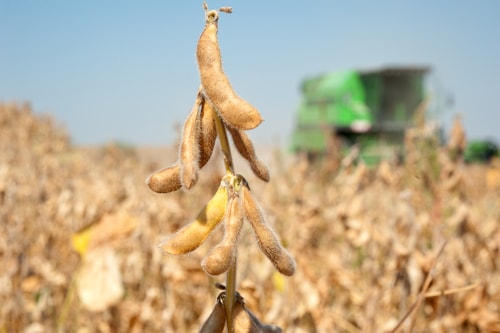Variety of factors involved in producing that kind of yield
By Diego Flammini, Farms.com
If you’re looking for advice on how to improve in certain areas, starting with people near the top of their fields is the way to start.
If you’re a boxer looking to perfect your footwork, try giving Floyd Mayweather a call.
St. Louis Blues hockey player Vladimir Sobotka could be a source of advice if you’re a hockey player looking to improve your faceoff abilities, seeing as Sobotka leads the NHL in faceoff winning percentage.
Or if you’re an artist struggling with a direction of a piece, try contacting Gillian Wearing as she’s described as an important artist of the current times.
When it comes to farming and agriculture and in this case soybeans, Peru, Illinois farmer Dan Arkels is near the top of his game.
He won the 2014 Illinois Soybean Association Yield Challenge with a yield just under 104 bushels per acre, becoming the only Illinois farmer on record to do so, and he shared some of the steps he took to get the record yield.
One factor that is uncontrollable as all farmers know, is weather. Arkels said sunlight and rain at the right time plays a big key in the success of the crop.
Arkels also mentioned the following factors as important to yield production:
- Keeping plants healthy with fungicide and bio treatments
- Three-year corn rotation
- Using phosphate and potash liquid nitrogen. 32% pre-plant according to Arkels.
- Putting down 150 units of nitrogen
In addition to those steps, Arkels said he also had a team who met with him every two weeks and would thoroughly analyze the field’s progress and would adjust accordingly.
The world record for soybean yield was set in 2010 by Kip Cullers with a yield of 160 bushels per acre.

Soybeans